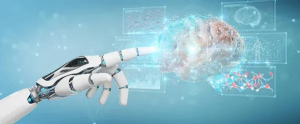In a recent revelation, the United Nations warned about the potential dangers of advanced neurotechnology combined with artificial intelligence (AI). According to reports, brain implants & scans, which have been making “warp speed” progress, could significantly threaten our mental privacy. UNESCO, the United Nations Educational, Scientific, and Cultural Organization, has expressed concerns over the far-reaching implications of this fusion, urging caution to safeguard our rights to human dignity, freedom of thought, and privacy. Let’s delve into the fascinating world of neurotechnology, AI, and the delicate balance between life-altering benefits and potential hazards.
Also Read: Groundbreaking News: FDA Grants Approval to Elon Musk’s Neuralink for Human Trials

Neurotechnology and AI: A Brave New Frontier
Neurotechnology is an exciting and rapidly growing field that aims to connect electronic devices with the human nervous system. Originally developed to treat neurological disorders and enhance mobility, communication, vision, and hearing, neurotechnology is now experiencing a revolutionary boost thanks to artificial intelligence algorithms. These powerful AI systems can process and learn from data like never before. This has opened new frontiers in understanding the complexities of the human mind.
Also Read: AI Excels at Detecting Mental Illness

The Menace of Mental Privacy Intrusion
While the possibilities offered by AI-powered neurotechnology are awe-inspiring, they come with an alarming downside. UNESCO warns that as these technologies advance, they could enable algorithms to decode people’s innermost mental processes and manipulate the brain’s mechanisms governing intentions, emotions, and decisions. The implications of such invasive access to the human mind raise profound ethical questions and call for vigilance.
Also Read: AI Accurately Converts Brain Signals Into Video

Balancing Benefits and Risks: A Personal Account
UNESCO shares the story of Hannah Galvin, a woman who had a neurotech device implanted in her brain to detect seizures and provide timely alerts. While the technology held life-changing potential, it came at a cost for Galvin. The constant activation of the device due to her frequent seizures led to distressing feelings of invasion and depression. Her experience underscores the need for a nuanced approach to harnessing neurotechnology’s capabilities responsibly.
Also Read: The Double-Edged Sword: Pros and Cons of Artificial Intelligence
Navigating the Ethical Landscape
Recognizing AI-driven neurotech’s profound challenges, UNESCO’s Director-General, Audrey Azoulay, proposed a “common ethical framework at the international level” to protect human rights and privacy. As these technologies evolve, striking the right balance between innovation and safeguarding individual dignity remains paramount.

Potential vs. Privacy: Walking the Tightrope
Experts acknowledge the immense potential of neurotechnology in resolving various health issues, from enabling sight for the blind to restoring mobility for those with paralysis. However, as AI continues to empower these advancements, we must tread carefully to avoid compromising mental privacy and personal autonomy.
Also Read: MIT launches Neuromorphic Chip that can work like a Human Brain
Our Say
The convergence of neurotechnology and artificial intelligence holds incredible promise for humanity, ushering in an era of medical breakthroughs and life-altering improvements. However, UNESCO raises essential questions about safeguarding mental privacy and preserving individual rights in this rapidly evolving landscape. As we embark on this journey of technological marvels, striking a delicate balance between the benefits and potential risks becomes crucial to protect the sanctity of our minds and ensure a future that respects human dignity and freedom.





